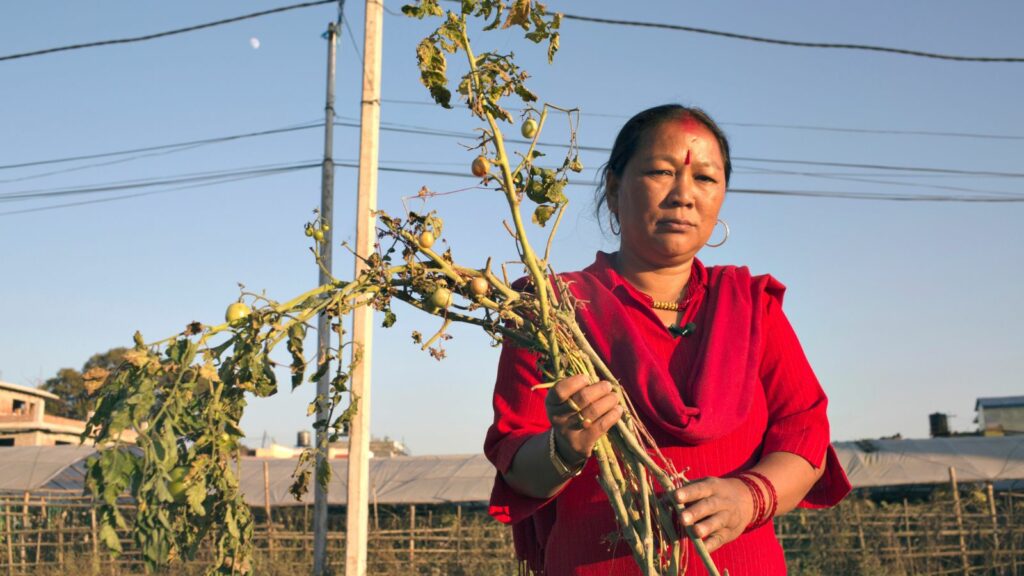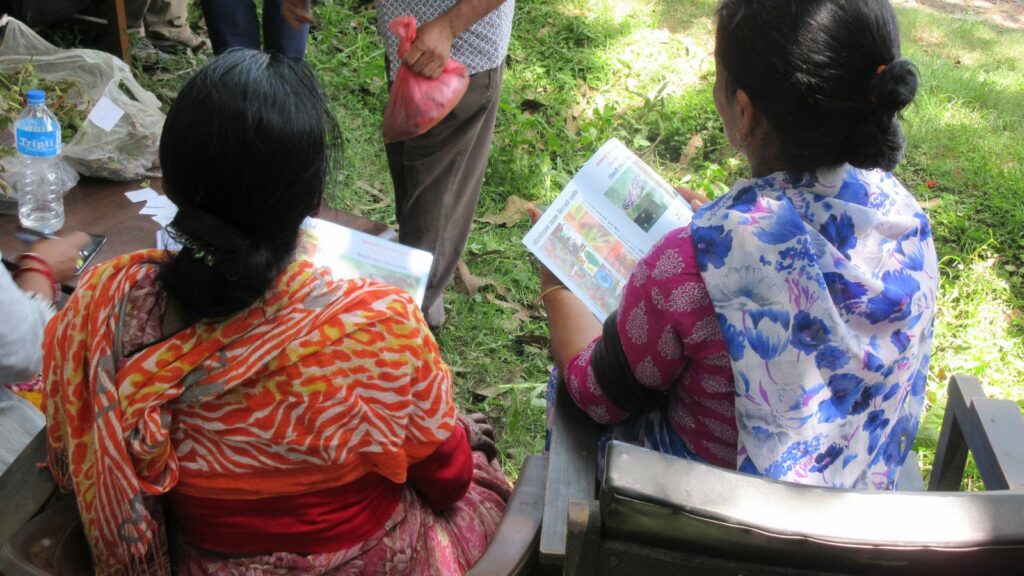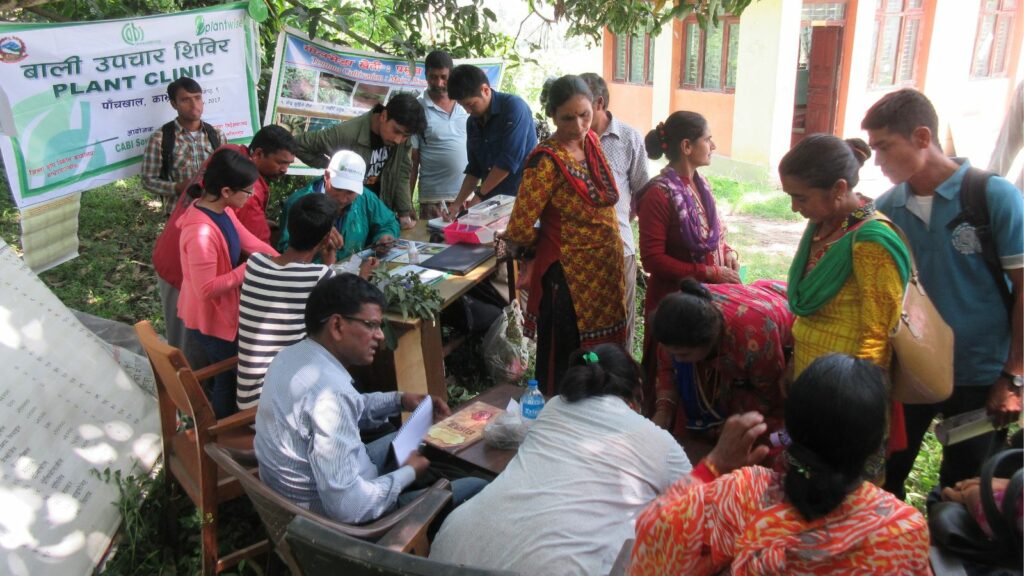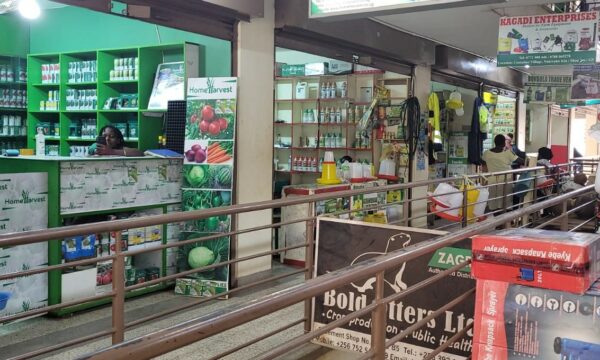In almost all regions of Nepal, women have a greater involvement than men in farming activities. The World Bank estimates that 74% of Nepalese women work in agriculture, yet they struggle to have equal access to agricultural resources.

A new study highlights gender integration in the Plantwise programme and identifies the strengths and limitations in Nepal. It focuses on three districts that have implemented activities to improve women’s participation in agricultural advisory services.
Lesson on improving access to plant clinics
In Nepal, farming tasks are often divided by gender, with men mostly involved in the hard manual work such as ploughing and operating heavy agricultural machinery. However, due to male migration, this division of labour is changing. Male migration has led to some women undertaking all farming activities, from planting to harvesting and marketing. As a result, women’s workloads are increasing. More of the farming activities, coupled with unpaid care and domestic work, leave little time for female farmers to participate in agricultural advisory services.
The Plantwise programme has adopted several strategies to help female farmers to access extension services. One such approach was to consult with women farmers on the timings of plant clinic. As a result, Plantwise clinic sessions were held late morning or early afternoon when female farmers were more likely to attend.

Socio-cultural barriers in Nepal
In places where socio-cultural norms discouraged women from consulting male plant doctors, the programme has worked hard to make sure women plant doctors are available either at a clinic or through a phone call or individual visit to farmers.
Nepalese Plantwise programme staff observed women farmers were more likely to consult female plant doctors than males. Possible reasons include women feeling more comfortable with or trusting female plant doctors as a result of socio-cultural norms or due to curiosity about female plant doctors.
Lessons on the remote provision of plant health advisory services
Covid-19 curtailed plant clinic operations. However, Nepalese farmers still needed information and advice. During the pandemic plant doctors used online platforms, such as Zoom and WhatsApp, to conduct almost all activities.
The study found that while virtual advisory activities were generally a positive experience, there were also challenges. These included limited access to devices and an internet connection and a lack of knowledge and experience using social media. Planning and organizing activities remotely were also difficult and time-consuming.
Women farmers especially have poor internet facilities and limited knowledge or use of social media. The experience showed the need for improving digital literacy among the farming community, especially women farmers.

Lessons on uptake of plant doctor advice in Nepal
Plant clinics provide farmers with advice such as crop pest diagnosis and identification and diseases and management recommendations.
Although farmer feedback on plant clinics was generally positive, there were challenges to implementing some of the plant doctor’s advice. For example, input dealers are not always local to farmers, making it hard to purchase the recommended pest management products on time.
Access to inputs in Nepal
Female farmers, in particular, face challenges accessing inputs. Socio-cultural restrictions may mean they cannot visit input dealers to buy recommended products, while financial limitations prevent them from purchasing and using them. Furthermore, female farmers have limited decision-making powers and say in household finances allocation, including what inputs and technologies to buy.
In response to these challenges, Plantwise has aimed to develop crop pest and disease management recommendations based on integrated pest management practices, with chemical recommendations as a final option. The data showed that most recommendations made to farmers were for locally available solutions and cultural practices, which the farmer can implement on-farm.
Recommendations for the gender-sensitive advisory services
The study recommends the following actions to sustain gender-sensitive plant health advisory services in Nepal.
• Training increasing numbers of female plant doctors and facilitators, equipping them with the IPM solutions at hand.
• Providing female plant doctors with some mobilization funds to empower them with digital tools.
• Collaborating with local government to conduct gender-inclusive awareness programmes.
• Educating farmers’ groups at various project locations on gender equality and social inclusion.
• Involvement of an equal number of women in agriculture decision-making platforms.
Further reading
Find out more about CABI’s new global PlantwisePlus Programme
CABI gratefully acknowledges the financial support of the Directorate General for International Cooperation (DGIS, Netherlands), the European Commission Directorate General for International Partnerships (INTPA, EU), the UK Foreign, Commonwealth & Development Office (FCDO), the Swiss Agency for Development and Cooperation (SDC), for the PlantwisePlus programme.
Related News & Blogs
CABI-led PlantwisePlus training to help increase livelihoods and greater food security in Papua New Guinea
Two international experts in crop and plant health from CABI have visited Papua New Guinea (PNG) to provide training in crop pests and disease which may help increase livelihoods and greater food security in the country. Agriculture is vital to PNG. It…
22 April 2024




